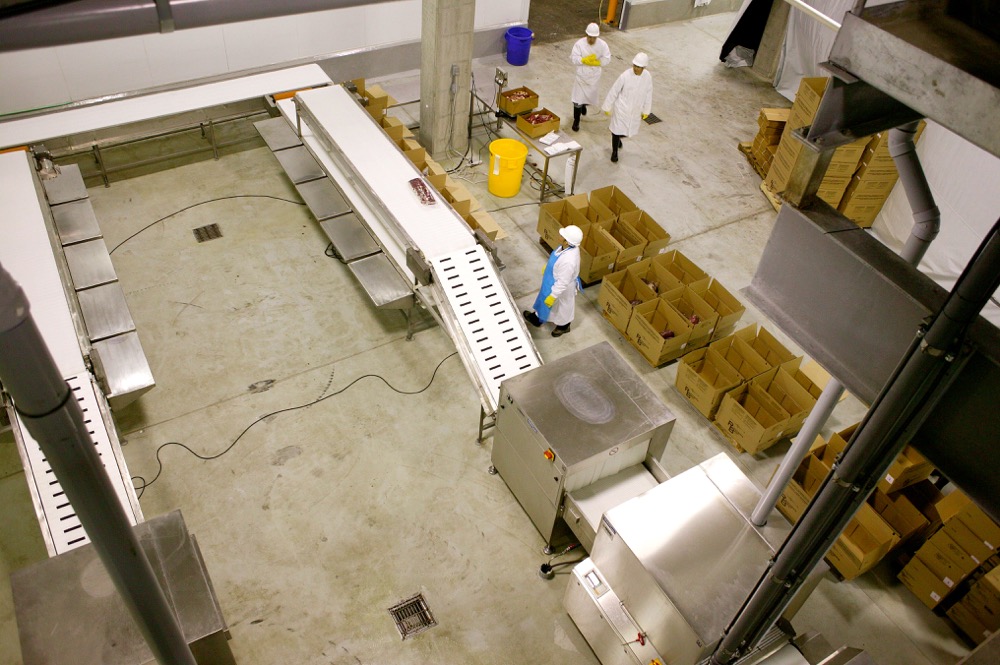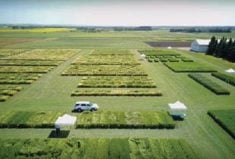Farm employers and food processors are hoping a new report will spur Ottawa to revamp its temporary foreign worker program.
“There are lots of things in the report that are very positive for ag and agri-food,” said Mark Chambers, senior production manager with Sunterra Farms and co-chair of the Agriculture and Agri-Food Labour Task Force.
Despite a huge — and increasing — shortage of workers on farms, ranches and in food-processing plants, the federal government has reduced the number of foreign workers companies can hire and upped the paperwork requirements. With numerous other sectors also complaining about the program, Parliament’s standing committee on human resources decided a thorough review was needed. Last year, it heard from dozens of groups, including the task force that Chambers co-chairs, as well as labour experts, unions, and foreign workers.
Read Also

Dairy marketplace faces big changes
Beginning in April, dairy producers will be facing payment changes as processors and industry move to meet consumer demands and trends.
Many of the committee’s 21 recommendations echo what his group has been telling government for years, said Chambers.
“It’s very encouraging because they’ve obviously listened,” he said. “Now I guess the million-dollar question is: Will the government look at this report and say, ‘OK, these are good recommendations and we’ll implement some or all of them.’
“I’m hopeful that they will. We’ve been speaking to various departments but now you have a review panel saying they have to do something. So now it’s not just coming from the industry.”
The problems with the program in regard to agriculture are manyfold and that’s reflected in the makeup of the task force, which includes farmers from different commodity sectors, food processors, and industry associations. But the common problem they share is that most Canadians don’t want to move to a rural area for jobs that are often physically demanding and sometimes unpleasant, such as working in a meat-processing plant.
The Canadian Agricultural Human Resource Council says there are 60,000 unfilled jobs in the farm and food-processing sector and the shortage will reach 114,000 by 2025.
Chambers knows that problem first hand as his company has tried for years to fully staff its hog-processing plant at Trochu. The operation employs 120 people, but needs 10 to 15 more.
“We’ve still got empty positions and we believe it’s costing us significant money,” he said. “If we had a fully staffed plant, we could probably capture another $5 million (a year) in sales revenue. A lot of the value added doesn’t get done anymore and so we’re basically throwing away food because we don’t have enough staff to add value.”
Sunterra Meats has been getting a few more applications since the downturn in the oilpatch, but only enough to keep its meat-processing lines going. What’s being thrown away is pig hearts, livers, and lungs.
“You and I may not want to eat those products but there’s a lot of overseas countries that see them as a delicacy,” said Chambers. “But you need a consistent supply — it’s not one of those things you can do one week but not the next. So you need a solid workforce before you can say, ‘OK, now we can develop this market.’”
But since the company has maxed out its foreign worker limit — 20 per cent for companies already in the program — it can’t recruit abroad to fill those jobs.
This was one of a multitude of issues that farm employers and processors raised with the parliamentary committee. Some are quirky — for example, grain farmers can’t use the seasonal farm worker program that’s available to vegetable and fruit growers.
“The caveat to that is you have to be on the national commodities list. And grain, for whatever reason, is not on the commodities list so grain farmers can’t use this program.”
But others are more complex. Chambers and other meat and seafood processors have spent years telling federal officials that the foreign workers they hire should have a “pathway” to citizenship. Highly skilled workers, such as physicians, can easily qualify for permanent residency but it’s much more difficult for those “at the bottom of the list” when it comes to job skills.
“We want a pathway for permanent residency even for those at the bottom of the list,” said Chambers. “People should be able to come in on a work permit and if they meet all the criteria, become permanent residents.”
But the biggest request has been for agriculture and agri-food processing to have its own foreign worker program. And that call, too, was heard by the parliamentary committee, he said.
“One of the things we’ve been continually pushing for is that ag and agri-food need to be taken out of the regular temporary foreign worker program and have their own robust, stand-alone program that works and would generate pathways to permanency,” he said. “And when we look at this report, we see a lot of that in there.”
















